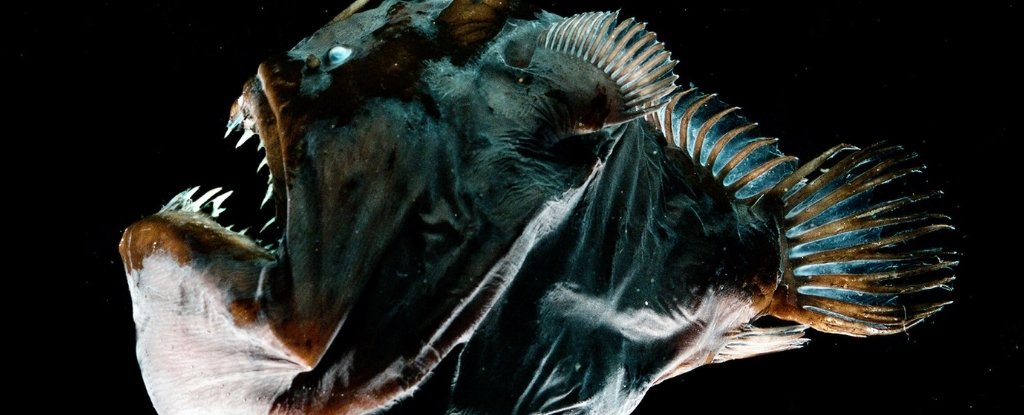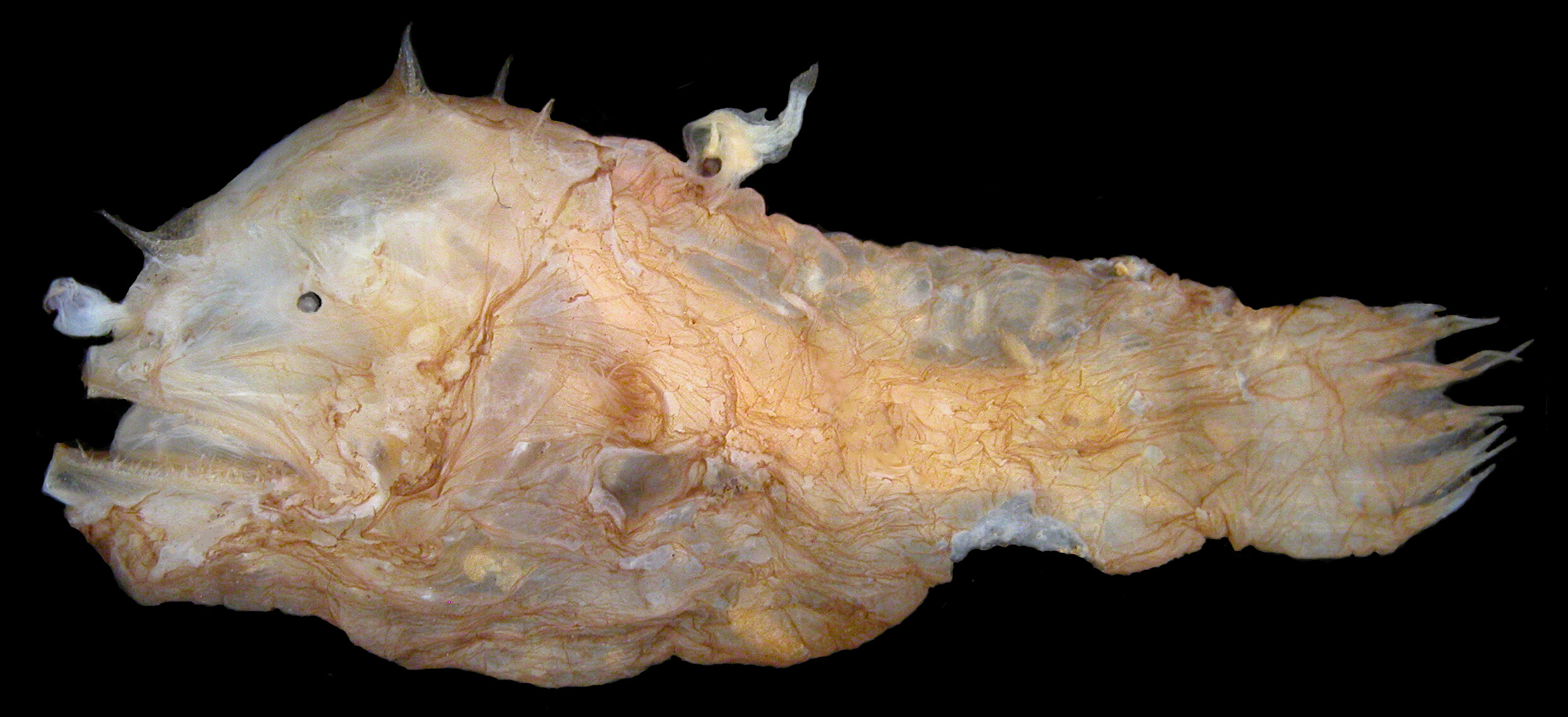
Dating is difficult enough when you have abundant decision, yet envision floating through a dim nothingness, half-framed and powerless, starved for supplements and love.
So goes the life of a single man anglerfish, and when there aren't a lot of fish in the remote ocean, you can't reprimand them for being a little tenacious when they do discover one.
In any case, some anglerfish take that destitution to the outrageous. At the point when certain species track down a mammoth female in obscurity, they will whip out their sharp teeth and chomp their date by the stomach.
When they have a strong handle, these minuscule guys, some of the time no greater than a centimeter, will discharge a compound that disintegrates the encompassing skin, merging his and her tissues, and setting up a typical course of blood.
Agreeable finally seeing someone serves him up standard suppers, the male may even begin to lose its eyes, blades and some inward organs.

In this frightful manner, these fish become simply faithful and adoring limbs with testicles. Or then again, more precisely, sexual parasites.
As one naturalist put it in 1938: "This is sheer fiction, past all conviction except if we have seen its evidence."
What's more, we have - we've really got film. Outside of indistinguishable conjoined twins, researchers state this is the main other case of sexual parasitism that is normally happening.
For a long time, we've considered how anglerfish really do it, and now we may have made sense of it.
In any event, for the best specialists, intertwining unfamiliar tissue and building up a typical blood course is unimaginably troublesome. Human organ transplantation requires long lasting immunosuppressants, since vertebrate safe frameworks are advanced to assault unfamiliar issue that may represent a danger.
Be that as it may, anglerfish don't appear to have those issues. Examining the genomes of 10 distinctive anglerfish species, researchers have discovered these fish have contrasts in a few significant pieces of the vertebrate invulnerable framework.
A few animal categories were feeling the loss of the qualities that encoded for a sort of antigen found on the outside of substantial cells, and which is known to flag the invulnerable framework when trespassers show up.
These are known as significant histocompatibility (MHC) antigens, and keeping in mind that they are generally incredible for our wellbeing, they cause a ton of issues during organ and bone marrow transplantation when we need unfamiliar issue to remain.
"Aside from this abnormal heavenly body of MHC qualities, we found that the capacity of executioner Lymphocytes, which regularly effectively dispense with tainted cells or assault unfamiliar tissues during the organ dismissal process, was additionally seriously blunted if not lost altogether," says immunobiologist Jeremy Swann from the Maximum Planck Foundation in Germany.
"These discoveries alluded to the likelihood that the invulnerable arrangement of anglerfishes was extremely bizarre among the a huge number of vertebrate species."
To make these fish much more unusual, specialists discovered a few animal groups were missing antibodies - the second significant resistant barrier framework, which label trespassers for assault.
In people, the creators state, the loss of all these resistant offices would in all likelihood execute us.
"The investigation consequently shows that regardless of a few hundred million years of co-developmental association of inborn and versatile capacities, vertebrates can make due without the versatile invulnerable offices recently viewed as basic," says immunologist Thomas Boehm from the Maximum Planck Establishment.
"We expect that so far obscure transformative powers first drive changes in the invulnerable framework, which are then misused for the advancement of sexual parasitism."
The inquiry has hence gone from: how did anglerfish advance to endure melding with another?; to: how did anglerfish develop to get by without the most critical pieces of the vertebrate invulnerable framework?
 Female anglerfish of the species Photocorynus spiniceps, 46 mm, with a 6.2 mm parasitic male fused to her back. (Theodore Pietsch)
Female anglerfish of the species Photocorynus spiniceps, 46 mm, with a 6.2 mm parasitic male fused to her back. (Theodore Pietsch)
Plainly, these fish aren't totally unprotected. The creators figure they should draw on some natural resistance to ward off contamination - one that doesn't recall and adjust to microbes, basically slaughters them by and large.
On the off chance that that is valid, it sabotages a key supposition of vertebrate development.
"Our discoveries challenge the view that, when intrinsic and versatile resistant frameworks have occupied with co-advancement, neither one of the arms can be wiped out without inconvenient outcomes," the writers compose.
Rather, apparently anglerfish have lost key parts of this versatile insusceptible framework after it developed among most vertebrates exactly 500 million years back.
"We think that its wonderful that the surprising method of proliferation was developed a few times autonomously in this gathering of fishes," says developmental scientist Theodore (Ted) Pietsch from the College of Washington.
Among the genomes considered, the creators really distinguished a few phases of this bizarre development in real life. The less solid the physical connection between mates, the more the anglerfish resistant framework took after different vertebrates.
Starting at now, we can't state without a doubt why these anglerfish have adjusted such odd resistant frameworks, yet it appears to be likely that it's some way or another attached to their unusual regenerative propensities. Furthermore, these are in all likelihood driven, somehow or another, by their solitary condition.
When there's no expectation for life outside of affection, it appears these fish will surrender up pretty much anything for a day to day existence accomplice, their balances, their eyes, their invulnerable frameworks, and even their organs.
"There's fundamentally no uprightness now," Pietsch revealed to The New York Times.






No comments